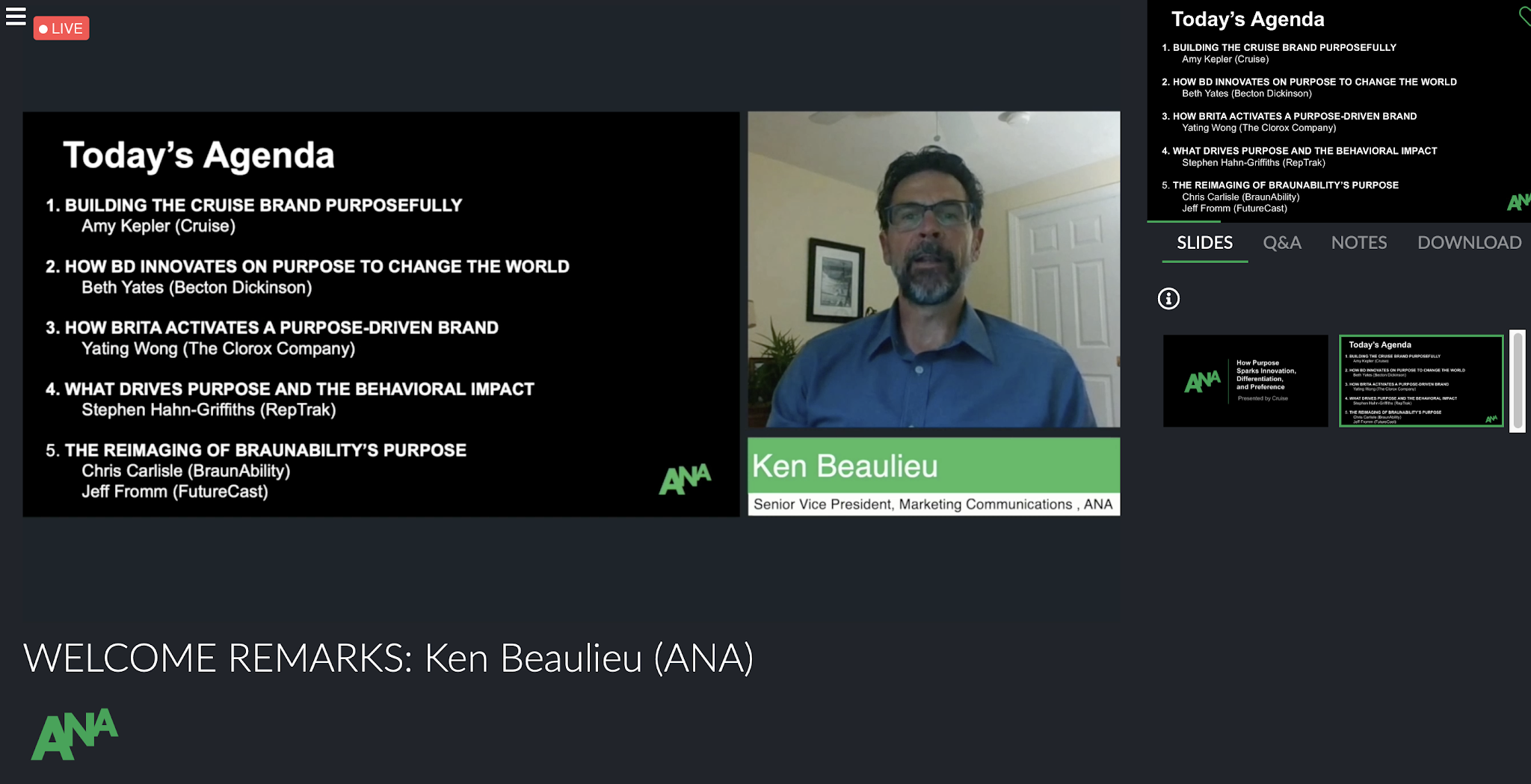(Almost) IN-PERSON | John Holliday-Stewart
During these unprecedented times of COVID-19, person to person interaction has moved from the physical to the virtual space. Large scale events have been either postponed until later in 2020 or cancelled. Organizations have made the transition to an all-digital world, without a road map to guide the way. (Almost) IN-PERSON was a daylong conference with sessions geared towards sharing ideas/experiences involving moving in person events to the digital space.
The opening keynote address, “The Current State of Events” was given by Eran Ben-Shushan, CEO & Co-Founder, Bizzabo. He began his speech with a powerful statement.
"Virtual events must be incorporated in marketing strategies for businesses to remain viable. "
A startling statistic was shared, due to the cancellation of the ten biggest tech conferences, an economic loss of $1.1 billion. This figure excludes losses from corporate sponsorships, registration sales, local economic sales and customer retention. Mr. Ben-Shushan suggests a four point model for businesses to consider, when adapting to the new virtual event world. “We don’t have the knowledge or the experience regarding this type of climate,” Ben-Shushan stated. The LEAD Model focuses on Long Term (virtual will not replace in person events, but the landscape will be different post COVID), Engaging (organizations must pivot to adapt to the new virtual/hybrid landscape and highlight ways to keep attendees involved), Agile (agility is paramount and must be a part of the framework of the event planning strategy), Decisive (organizations must be thorough and make quick decisions). The main takeaway is, organizations that are flexible and embrace out of the box thinking will be the most successful producers of engaging events.
The next session that I attended focused on ways to make virtual events as impactful as in person. “Bridge The Gap on Hybrid Events” was moderated by Brandon Rafalson, Content Marketing Strategist, Bizzabo. The panel included Nicola Kastner, Global Head of Event Marketing Strategy, SAP, Jennifer Hoffmann Roach, Head of Audience, Bloomberg Live, and Lindsay McKenna, VP of Revenue Marketing, Yext.
The session opened with a survey of attendees, posing the question of what route has your company taken regarding events. Results were an almost even split among postponement, cancellation and moving to an online/virtual platform. We were then presented with a grim statistic, more than 60% of people surveyed feel that it will be 2021 or later before the world returns to a pre-COVID mindset regarding large scale public events. The panel provided insights on the gaps that event planners have encountered with the pivot to virtual events. Planners have struggled with maintaining a balance of providing content, while losing the in person human aspect. The panel suggested incorporating aspects such as webinars, Zoom networking rooms and message boards. There are also positives to this new way of conducting events. The long-term idea that in person events are rich and engaging and virtual events are passive, is no longer the case. Planners are ensuring that virtual events are interactive and engaging. Jennifer Hoffmann Roche stated,
"After COVID-19, what’s important to recognize is that how we interact physically is different than how we interact digitally. We will experience a multi-phase reentry into in person events. The pendulum will not immediately swing back to its old position. "
By the end of the session, I know that this is going to be the new normal of the world, but it is not necessarily a negative. The reach of the digital space is far reaching, when compared to an in person event.





